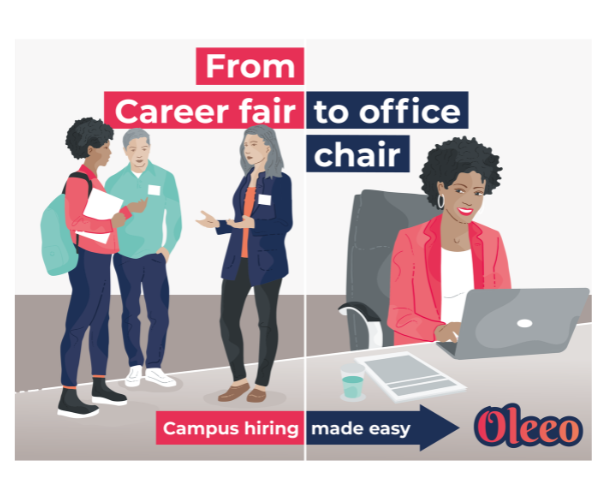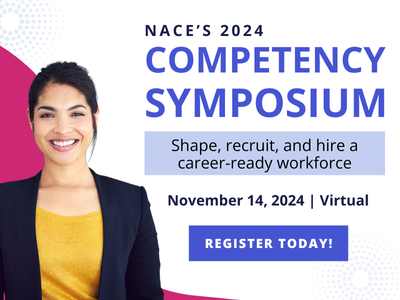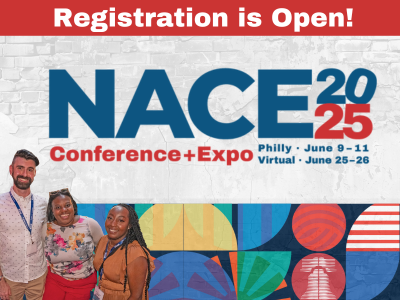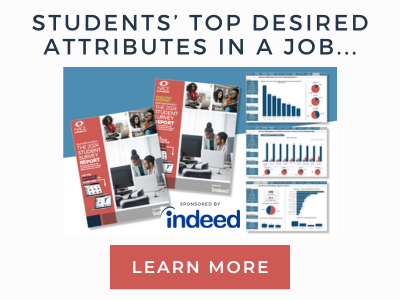Generation Z, often shortened to Gen Z, is made up of people born after 1996, according to the Pew Research Center. The U.S. Bureau of Labor Statistics projects that Gen Z will make up about 30% of the U.S. workforce by 2030. This means Gen Z will fill the seats of nearly 50 million jobs across the country, and while Gen Z may have some overlapping characteristics with millennials and other generations, there are notable characteristics that personally, professionally, and holistically define the budding professional generation.
As this shift in the workforce begins, there will also be a shift in the people we collaborate with, the people we will see as managers and leaders, and the people we will see creating seismic shifts across industries.
Each day that I work with Gen Z students and alumni, I’m amazed by their unrelenting tenacity, determination, and desire to maximize their career potential. As a Gen Z professional and career coach myself, I see a lot of my own values and characteristics in the students and alumni I work with. As someone whose strongest enduring skills are communication, collaboration, and collective advocacy, whose early career has also largely been shaped by the pandemic, I couldn’t feel more aligned with the up-and-coming generation of professionals.
For now, what remains consistent across Gen Z early career professionals is that many entered the workforce in the midst of a global pandemic, which has impacted their navigation of the world of work, particularly around workplace expectations.
Employers can prepare themselves for hiring and working alongside the youngest professional generation by anticipating the need for flexible working conditions. It comes as no surprise that Gen Z would demand options when it comes to how they do their work, given that their introduction to work occurred in a virtual world, and many now want an increased in-person connection as an opportunity to improve skills such as in-person communication, meaningful collaboration with colleagues, and opportunities for connection and belonging that enhance their value in the workplace.
Because of the range of preferences that exist across Gen Z, employers should be cognizant of the flexibility and accessibility of their work options to support not only Gen Z, but also their millennial and Generation X colleagues as well. In fact, if hybrid work is not available, Gen Z might not stick around, according to research conducted by McKinsey and Company.
Additionally, given the current housing situation, with a ruthless rental market, high interest rates, and unaffordability near major cities and in thriving neighborhoods, it makes sense, then, that Gen Z students preparing to enter the workforce may expect more than a livable wage and are prepared to navigate their compensation package. According to a report by Yahoo, Gen Z workers say they require an average salary of more than $170,000 to feel financially healthy, the highest generational income reported. However, 51% of the global Gen Z population report that they live paycheck to paycheck, according to a survey by Deloitte, so finances are a top priority. Put simply, job stability and solid benefits help Gen Z prepare for their financial futures, and they’re not shy about demanding decent pay, according to recent research done by Handshake.
Ultimately, despite stereotypes that often paint Gen Z as avoiding face-to-face interactions, preferring information in quick bursts due to short attention spans, and being increasingly social media- and technology-dependent, Gen Z promises goals, values, and outlooks that can shape the workforce for the better, and their hard-working nature, values-centric approach to work, and desire for feedback to help them accelerate their growth are critical structures in their increased presence in the workforce, according to a White Paper released by Workday.
The most diverse generation as of 2020, according to Deloitte, Gen Z is prepared to welcome and uplift historically underrepresented groups, as they evaluate diversity differently than previous generations. Employers can use this as an opportunity to lead DEI practices among millennials, Gen X, and baby boomers, helping them mentor and shape inclusive leadership traits in Gen Z. Employers can also establish clear opportunities for growth, mentorship, and model of a “successful” employee to help retain Gen Z talent, as space to explore and hone their skillsets is important to them. And, because of the pandemic’s impact on Gen Z’s early careers, employers can leverage Gen Z’s perception of how they can work and be effective contributors in many different roles and industries.
Adapting to an intergenerational workforce can be just as challenging for millennials, Gen X, and baby boomers as it is for Gen Z. Good managers will praise the contributions of their intergenerational teams in ways that feel good for them, as well as remember that we all share many common values at the end of the day. There is an inherent need in all of us to derive value and good from the work that we do, and most of the time, we want one another to be successful. The new perspectives, talent, skills, and traits Gen Z brings to the workplace should excite us all as we navigate economic challenges, cause-driven work, and the variability of the labor force.







